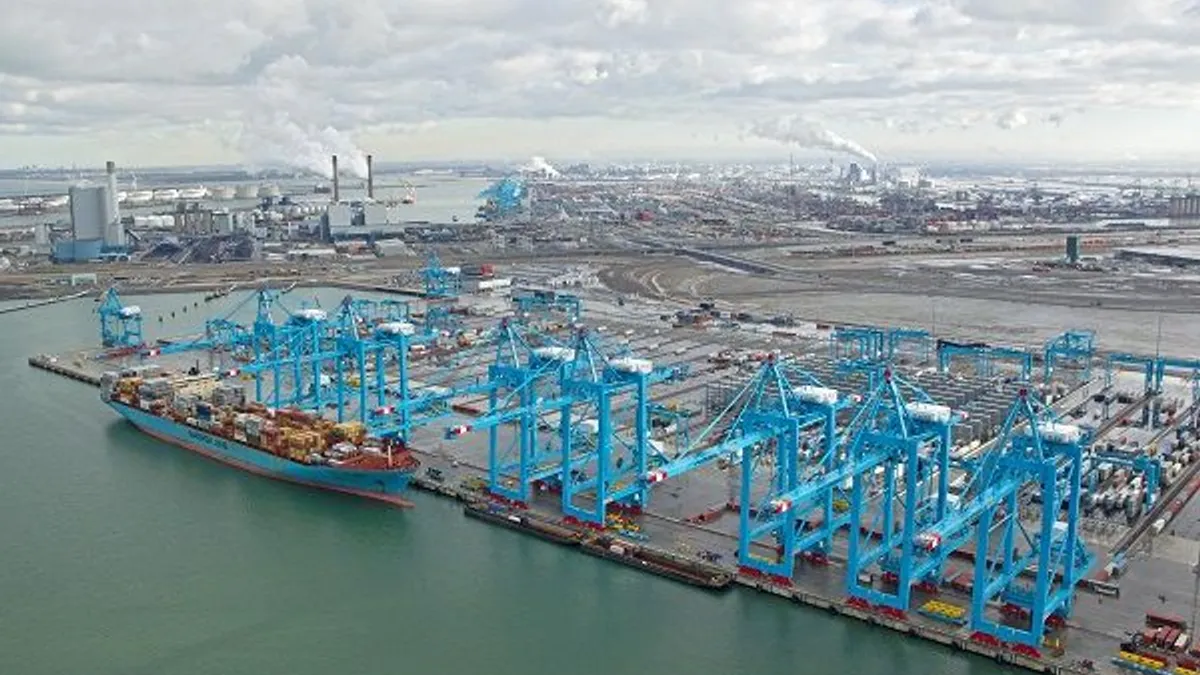Dive Brief:
- The Port of Rotterdam will conduct a customs trial in November to test protocols 90 days ahead of the United Kingdom's exit from the EU in 2019, The Loadstar reports.
- The report followed comments by Port of Rotterdam Authority CEO Allard Castelein, who told delegates at a local conference he feared the port could lose half of its throughput from the U.K. if Brexit negotiations result in "no deal" between the two parties.
- Castelein said he expects traffic jams to increase during the trial, as the port tests import and export protocols on veterinary and food products, among others. The trial, he said, should help reduce "choke points" once Brexit does happen.
Dive Insight:
The largest port in Europe is leading the charge in risk management, partly to secure its throughput but also to avoid congestion that could temporarily damage the flow of products as it adjusts to new customs procedures.
Even though the United Kingdom only accounts for 8.5% of the port's total throughput, the Port of Rotterdam anticipates Brexit will require more than 100 new customs officers and added inspection points at its facilities.
The new formalities "may increase waiting times, subsequently increasing costs for freight forwarders, operators and terminal operators," the port stated in December.
Such increased waiting times could affect more than just the imports from the U.K.
"The Port of Rotterdam is a major entry point of all kinds of product," Frans Nederstigt, media officer at the Netherlands Enterprise Angency, told Supply Chain Dive. "The thing with Rotterdam is that not everything will come from the United Kingdom."
The concern over customs delays starting in March 2019 is so great, the European Sea Ports Organization recently called on Brexit negotiators to consider trade facilitation a priority in its talks, or risk "turning ports into bottlenecks."
The risk factors highlight the various ways business in Europe may be affected by the outcomes of Brexit talks.
"You might think to yourself I don't deal with the United Kingdom myself so it doesn't really affect me, but it may affect one of your suppliers," said Nederstigt.
Nederstigt gave the example of "Made in Europe" labels requiring a certain percentage of components to be sourced from the EU. With the U.K. leaving the trade block, many products may suddenly find themselves unable to meet the rules of origin requirements.
"If a vital part of your supply chain does actually have to deal with the United Kingdom," Nederstigt said, "then certainly there will be some delay or extra cost because the United Kingdom is no longer in the EU then that causes an effect in your supply chain."
His government agency provides a "Brexit scan" that helps businesses in Holland identify such risks.
When asked if he had seen any other post-Brexit initiatives like the Port of Rotterdam's in the EU, he said: "Not on this scale."















